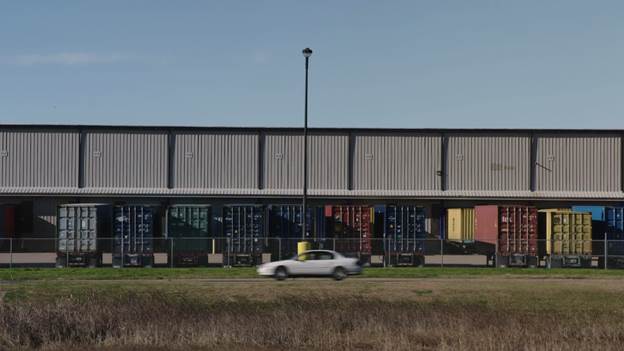
Fault Lines and Reveal Investigate Unpaid and Dangerous Work Inside Drug Rehab
A saw mill outside of Houston, Texas, is one of more than 300 companies where a drug treatment center
called the Cenikor Foundation has sent its clients to work unpaid jobs -- the subject of a new documentary
from Fault Lines on Al Jazeera English.
(Washington D.C. – 17th April, 2019) – Fault Lines, Al Jazeera English’s Emmy and Peabody-award winning documentary programme, is releasing an investigative documentary in collaboration with Reveal from The Center for Investigative Reporting.
“Recovering from Rehab” explores a national trend inside drug rehab centers called work-based therapy, where clients labor long hours in unpaid jobs for private companies to pay for their stay in residential drug treatment centers. Fault Lines and its reporting partner Reveal investigated one of the nation’s largest and most lucrative rehab centers of this kind -- a Texas-based nonprofit called The Cenikor Foundation.
In the last five years, Cenikor has put more than 6,000 people to work for private industries including the oil and gas, manufacturing, construction, and warehouse sectors. While clients get no pay, Cenikor has made about $36 million since 2014 from its work programs.
Fault Lines focuses on the stories of four of those clients, who entered Cenikor’s programs in Texas and Louisiana seeking help with addictions. They knew that getting clean would be hard work, but they had no idea what Cenikor had in store for them.
In 2016, Ethan Ewers got sent to Cenikor by a judge for violating his probation on felony drug charges. Soon, Ewers’ treatment plan meant unloading boxes at a Wal-Mart warehouse outside of Houston -- for 43 days straight. He wanted a day off, but the stakes were high. If Ewers failed to finish Cenikor’s work-based program, he could’ve ended up in prison.
A Wal-Mart warehouse in Texas where Ethan Ewers worked for 43 days straight without pay in 2016.
When Ethan Cenkus checked himself into a Cenikor facility in 2013, he signed a stack of waivers, giving Cenikor control over the wages he would soon be earning after long hours at a saw mill outside of Houston. It turns out, according to former Department of Labor officials, that Cenikor’s practice of taking the entire wage of clients working jobs at private companies might well be illegal.
Shortly after Alester Williams entered Cenikor’s work-based therapy program in Baton Rouge in 2013, he found himself working 70 feet in the air building scaffolds inside the city’s sprawling oil and gas industry -- one of the most dangerous industries in America. A fall on a rainy day shattered his knee, compounding his battle with addiction: now he would have to learn how to walk again.
When Matthew Oates checked into Cenikor’s Baton Rouge facility in 2017, he sought the vocational skills that Cenikor advertised on its website. Soon, he found out that Cenikor used work in another way: as a form of discipline. When Oates broke a rule inside the facility, he was sent to trim trees at a private residence. His fall from a 20-foot ladder on that job broke his back, and now he’s suing Cenikor while recovering from an injury that has changed his life forever.
In “Recovering from Rehab,” Fault Lines explores the ways that work-based therapy programs promise recovery from addiction to thousands of people in the midst of an American drug epidemic -- and finds out what happened to many of those people instead.
Note to Editors
● The Fault Lines episode will premiere online on Wednesday, April 24th.
● The full show will be available through this link: https://www.youtube.com/watch?v=6XL5QsGaJTI
● Follow Fault Lines on Twitter @AJFaultLines











